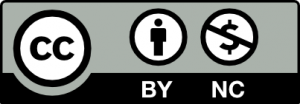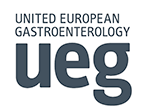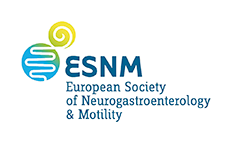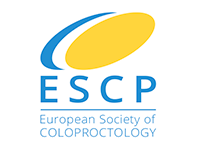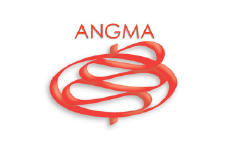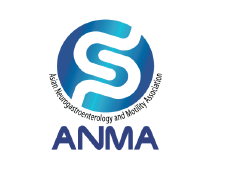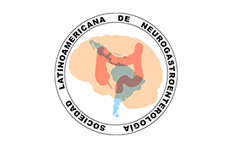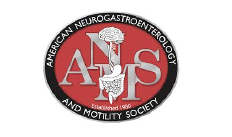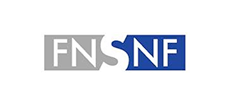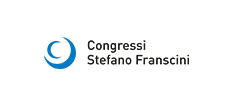
To view full video of the presentations with the slides Click here
For help view guide
To download the slides click on the title of the presentations below
Terms and conditions:
- Share — You are free to copy and redistribute the material in any medium or format
- Adapt — You are free to remix, transform, and build upon the material
- Attribution— You must give appropriate credit, provide a link to the license, and indicate if changes were made. You may do so in any reasonable manner, but not in any way that suggests the licensor endorses you or your use.
- NonCommercial— You may not use the material for commercial purposes.
- No additional restrictions — You may not apply legal terms or technological measures that legally restrict others from doing anything the license permits.
If you find this resource helpful, please consider a donation to creative commons!
Program
Jump to a specific day:
Morning Sessions
- Original Research
- State of the Art Lectures
Afternoon Sessions with active involvement of participants
- Workshops to discuss guidelines and classification systems
- Case based, seminar-style teaching
Evening Sessions
- Demonstrations of new technology hosted by sponsors, 19.30 – 21.00
| Arrival: Sunday 19th April 2015 | ||
|---|---|---|
| 15:00 |
Registration Desk Open.
|
|
| 18:00 |
Welcome Reception.
|
|
| 19:00 |
Dinner
|
|
| Day 1: Monday morning 20th April 2015 | ||
| 08.30 – 10.00 |
Oropharyngeal swallow: diagnosis
|
|
Videomanometry and HRM to assess oropharyngeal dysphagiaPeter Kahrilas, Chicago, USA |
||
Pressure flow analysis to assess pharyngeal dysphagiaTaher Omari, Adelaide, Australia |
||
Clinical use of pressure flow analysis in pharyngeal dysphagiaNathalie Rommel, Leuven, Belgium |
||
| 10.00 – 10.30 |
Coffee |
|
| 10.30 – 12.00 |
Pharyngeal swallow: treatment
|
|
Clinical management of oropharyngeal dysphagiaReza Shaker, Milwaukee, USA |
||
Use of TNS in treatment of oropharyngeal dysphagiaShaheen Hamdy, Manchester, UK |
||
Surgical treatment of UES dysfunctionTim McCullough, Milwaukee, USA |
||
| 12.00 – 13.30 |
Lunch |
|
| Day1: Afternoon | ||
| 13.30 – 15.00 |
Workshop / Hands-On Training
|
|
Acquisition of pharyngeal high resolution manometry: live demoNathalie Rommel, Leuven, Belgium |
||
Analysis of HRM and Pressure flow analysis of pharyngeal swallowingTaher Omari, Adelaide, Australia; Tim McCullogh, Madison, USA |
||
| 15.00 – 16.30 |
Coffee and Case Based Discussion
|
|
| Day 1: Monday evening | ||
| 18.30 – 20.00 |
Dinner with Public Event
|
|
Public event: Effects of diet and alcohol on digestive function and symptoms |
||
| Day 2: Tuesday Morning 21st April 2015 | ||
| 08.30 – 10.00 |
Esophageal Motor Disorders:
|
|
Update on the Chicago Classification 3.0Prakash Gyawali, St. Louis, USA |
||
Using impedance to study the mechanics of bolus transit and symptom generationTaher Omari, Adelaide, Australia |
||
Provocative testing: Repeated swallows, Multiple Water swallows, Test MealsRami Sweis, London, UK |
||
| 10.00 – 10.30 |
Coffee |
|
| 10.30 – 12.00 |
Esophago-Gastric Junction:
|
|
EGJ distensibility using Functional lumen imaging: ready for clinical use?Guy Boeckxstaens, Leuven, Belgium |
||
Novel HRM metrics and Devices (3D manometry) to study the EGJJutta Keller, Hamburg, Germany |
||
How to characterize the antireflux barrier in GERD: 3D manometry and beyondPeter Kahrilas, Chicago, USA |
||
| 12.00 – 13.30 |
Lunch |
|
| Day 2: Afternoon | ||
| 13.30 – 15.00 |
Transient LES Relaxations and beyond
|
|
How sphincter failure causes reflux: TLESRs and moreSabine Roman, Lyon, France |
||
How surgery suppresses reflux?Roger Tatum, Seattle, USA |
||
How reflux causes symptoms: permeability, sensitization and acidArjan Bredenoord, Amsterdam, the Netherlands |
||
How motor mechanisms cause reflux and esophageal symptomsRavi Mittal, San Diego, USA |
||
| 15.00 – 16.30 |
Coffee and Case Based Discussion:
|
|
| Day 2: Evening | ||
| 18.30 – 20.00 |
Dinner
|
|
| 20.00 – 21.00 |
Evening Symposium: The Lost Reflux Patient
|
|
Limitations of PPI therapy in GERD – “the lost reflux patients”Joachim Labenz, Siegen, Germany |
||
The acid pocket concept and its implications for the reflux patientPeter Kahrilas, Chicago, USA |
||
Endoscopic and Surgical Management of reflux disease: new opportunitiesSteve Attwood, Tyneside, UK |
||
| Day 3: Wednesday Morning 22nd April 2015 | ||
| 08.30 – 10.00 |
Current Utilization of Reflux Monitoring:
|
|
Catheter based vs. wireless reflux studiesRami Sweis, London, UK |
||
pH impedance monitoring on vs. off PPIDaniel Sifrim, London, UK |
||
Impedance monitoring beyond GERD diagnosisArjan Bredenoord, Amsterdam |
||
Optimal utilization of reflux monitoring in typical and atypical GERDFrank Zerbib, Bordeaux, France |
||
| 10.00 – 10.30 |
Coffee |
|
| 10.30 – 12.00 |
Evaluation of Gastro-Esophageal Reflux Disease
|
|
Advances in assessment of Reflux-Symptom AssociationAndre Smout, Amsterdam, The Netherlands |
||
Evaluation of Reflux Disease Beyond pH and impedance MonitoringEdoardo Savarino, Padua, Italy |
||
Dysmotility in Reflux Disease: Cause, effect, clinical relevance.Prakash Gyawali, St. Louis, USA |
||
| 12.00 – 13.30 |
Lunch |
|
| Day 3: Afternoon | ||
| 13.30 – 15.00 |
Workshop: Assessment of patients before and after surgery
|
|
Pre-operative workupMarcelo Vela, Houston, USA |
||
Complications after fundoplication surgeryMark Fox, Zurich, Switzerland |
||
Complications after bariatric surgeryGeoff Hebbard, Melbourne, Australia |
||
| 15.00 – 15.30 |
Coffee |
|
| 15.30 – 18.30 |
Workshop: the Ascona Gastroesophageal Reflux Monitoring ConsensusSpeakers: Prakash Gyawali, Sabine Roman, Edoardo Savarino, Arjan Bredenoord |
|
| Day 3: Evening | ||
| 18.30 |
Prosecco reception
|
|
| 19.15 |
Bus Transfer to Grotto Broggini |
|
| 19.00 – 22.00 |
Conference DinnerGrotto Broggini
|
|
| 22.30 |
Bus Transfer from Grotto Broggini to Conference Hotels
|
|
| Day 4: Thursday Morning 23rd April 2015 | ||
| 08.30 – 10.00 |
New Technology
|
|
Advances in the assessment of whole gut transit – practical demonstration of the SmartPillAnthony Hobson, The Functional Gut Clinic, London, UK |
||
ENDO-FLIP in the assessment of faecal incontinenceKlaus Krogh, Aarhus University, Aarhus, Denmark |
||
Clinical value of high resolution colonic manometryPhil Dinning, Flinders University, Adelaide, Australia |
||
| 10.00 – 10.30 |
Coffee |
|
| 10.30 – 12.00 |
Investigation and management of disordered defaecation I
|
|
Clinical utility of investigations of rectal sensationMark Scott, Barts and the London, London, UK |
||
Manometric features of sphincter dysfunction in constipation and evacuatory dysfunctionJose Remes, University of Veracruz, Veracruz, Mexico |
||
Advances in the conservative and medical management of evacuatory dysfunctionSatish Rao, Georgia, USA |
||
| 12.00 – 13.30 |
Lunch |
|
| Day 4: Afternoon | ||
| 13.30 – 15.00 |
Diagnosing evacuatory dysfunction
|
|
Diagnostic utility of balloon expulsionGiuseppe Chiarioni, Verona, Italy |
||
Diagnostic utility of evacuation proctography and MR defaecographyStuart Taylor, London, UK |
||
Diagnostic utility of conventional anal manometry and surface EMGBill Whitehead, Iowa, USA |
||
Diagnostic utility of HRAMAdil Bharucha, Rochester, USA (via video link) |
||
| 15.00 – 15.30 |
Coffee |
|
| 15.30 – 17.00 |
Panel Discussion: Objective measurement Losing the functional from functional anorectal disorders
|
|
Update on Rome Definitions of Anorectal DisordersAdil Bharucha, Rochester, USA (via video link) |
||
| Day 4: Evening | ||
| 18.30 – 20.00 |
DinnerCSF Conference Center Restaurant |
|
| 20.00 – 21.00 |
Symposium:
|
|
Introduction of a short barostat protocol for assessment of rectal functionMathias Sauter & Henriette Heinrich, University Hospital Zürich, Zürich, Switzerland |
||
Clinical value of percutaneous tibial nerve stimulation for the treatment of faecal incontinenceNatalia Zarate, University College London, London, UK |
||
Clinical value of transcutaneous electrical stimulation for the treatment of constipationRebecca Burgell, The Alfred Hospital, Melbourne, Australia |
||
| Day 5: Friday Morning 24th April 2015 | ||
| 08.30 – 10.00 |
Workshop: Transition to high-resolution anorectal manometryChair: François Mion, Lyon, France;
|
|
How do study protocol and equipment setup affect results?Henriette Heinrich, University of Zürich, Zürich, Switzerland |
||
What is normal?Rueben Wong, National University of Singapore, Singapore |
||
Do tests of anorectal function predict structure?Ravi Mittal, University College San Diego, San Diego, USA |
||
| 10.00 – 10.30 |
Coffee |
|
| 10.30 – 12.00 |
Investigation and management of disordered defaecation II
|
|
Manometric features of sphincter dysfunction in faecal incontinenceEmma Carrington, Barts and the London, London, UK |
||
Advances in the management of faecal incontinenceFrancois Mion, Lyon, France |
||
Advances in the surgical management of evacuatory dysfunctionDonato Altomare, Bari University, Bari, Italy |
||
| 12.00 – 13.30 |
Lunch |
|
| Day 5: Friday Afternoon | ||
| 11.00 – 16.00 |
Departure
|
|

